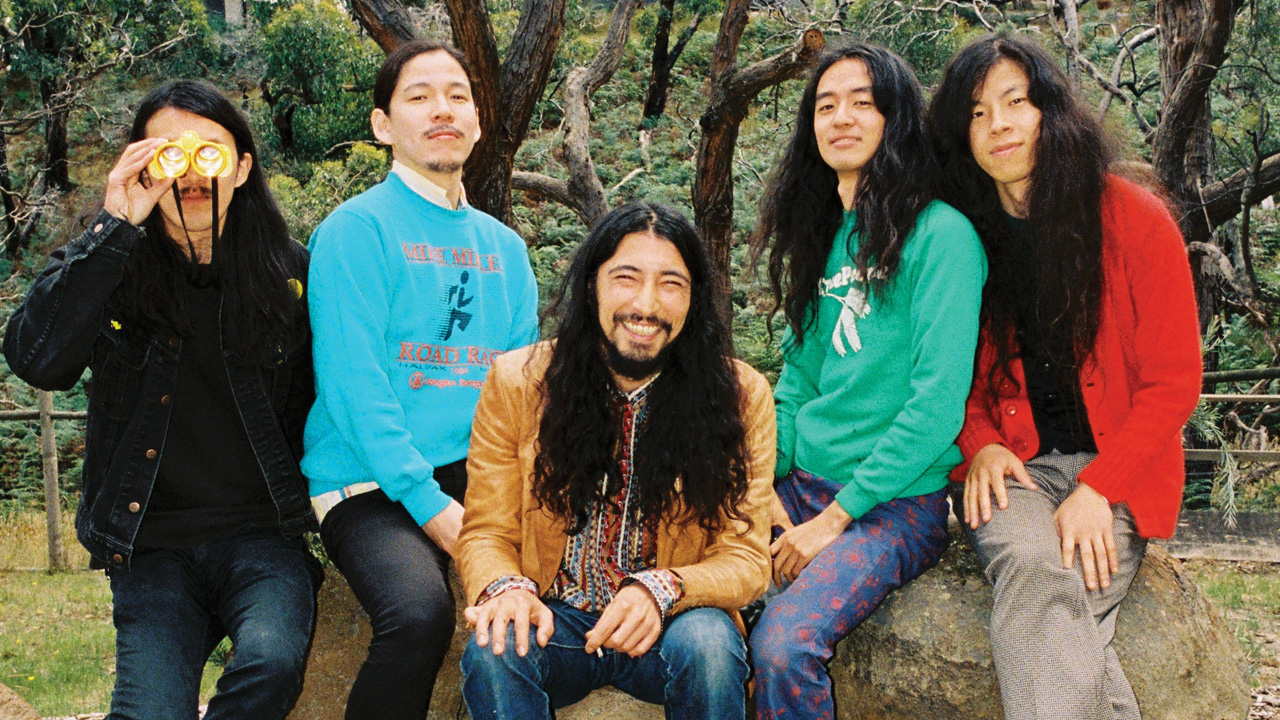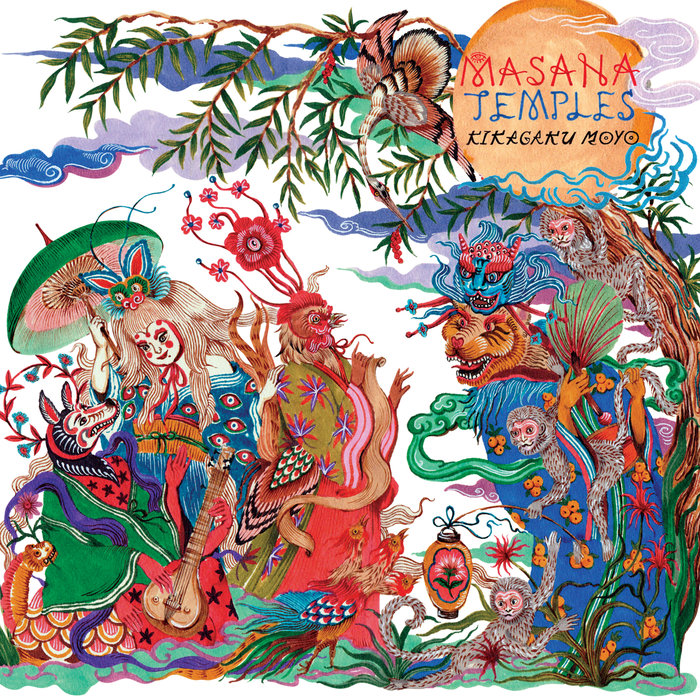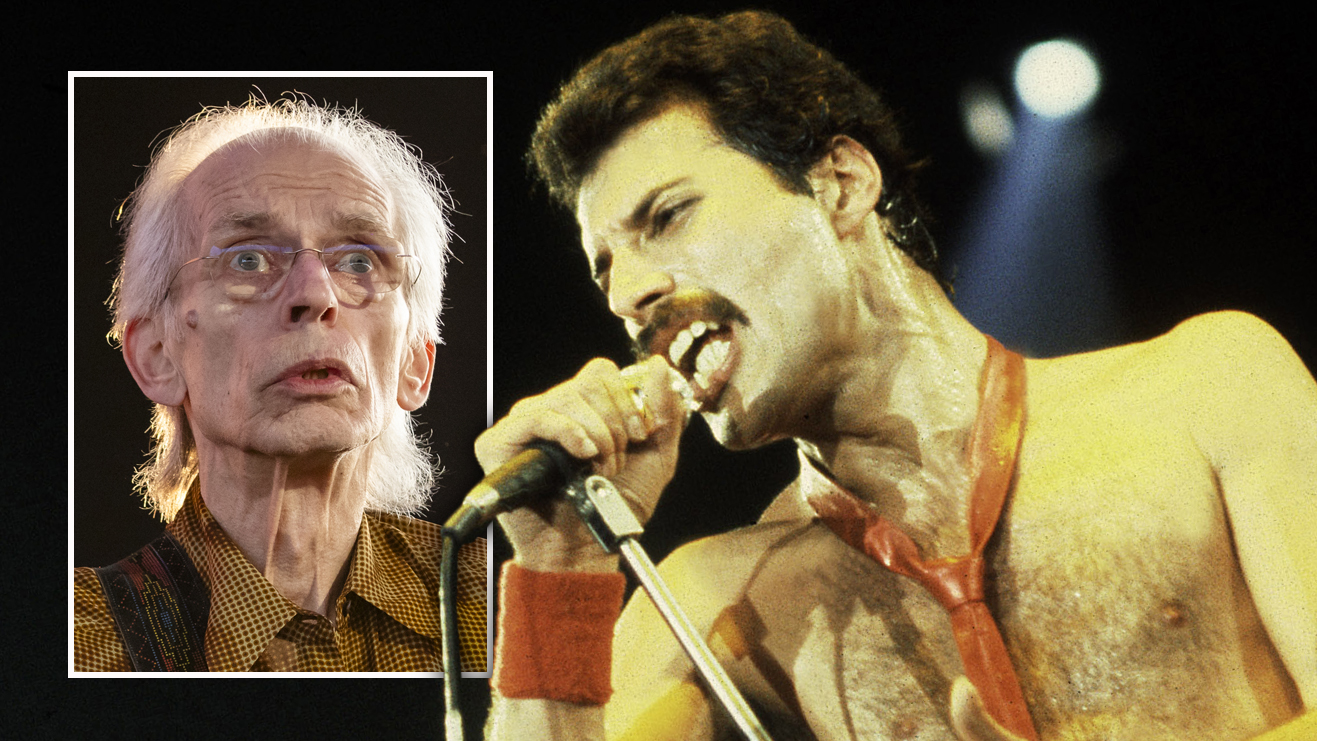Welcome to Prog Limelight band Kikagaku Moyo
Former buskers from Tokyo turning Europe on to Eastern psychedelia...

Select the newsletters you’d like to receive. Then, add your email to sign up.
You are now subscribed
Your newsletter sign-up was successful
Want to add more newsletters?

Every Friday
Louder
Louder’s weekly newsletter is jam-packed with the team’s personal highlights from the last seven days, including features, breaking news, reviews and tons of juicy exclusives from the world of alternative music.

Every Friday
Classic Rock
The Classic Rock newsletter is an essential read for the discerning rock fan. Every week we bring you the news, reviews and the very best features and interviews from our extensive archive. Written by rock fans for rock fans.

Every Friday
Metal Hammer
For the last four decades Metal Hammer has been the world’s greatest metal magazine. Created by metalheads for metalheads, ‘Hammer takes you behind the scenes, closer to the action, and nearer to the bands that you love the most.

Every Friday
Prog
The Prog newsletter brings you the very best of Prog Magazine and our website, every Friday. We'll deliver you the very latest news from the Prog universe, informative features and archive material from Prog’s impressive vault.

Line-up: Go Kurosawa (drums, vocals), Tomo Katsurada (guitar, vocals), Daoud Popal (guitar), Ryu Kurosawa (sitar), Kotsu Guy (bass)
Sounds like: Stoned, sitar-wielding Canterbury hippies jamming with early krautrockers on the foothills of Mount Fuji
Current release: Masana Temples (Guruguru Brain LP)
To help further the cause of up and coming new progressive music, each week we'll be bringing you one of the current issue's Limelight acts, complete with music to listen to. Remember, today's progressive music comes in all manner of guises, and it's important to support the grass roots of prog...
You only get one chance to make a first impression. Unfortunately for Japanese experimentalists Kikagaku Moyo, they haven't always made the impression they intended.
"When we started, we couldn't really play very well,” explains drummer and vocalist Go Kurosawa. So we thought we'd create a bit of mystery around us by playing one of our early shows in Tokyo completely covered in smoke.
"We thought, 'No one will be able to see us because we're invisible, and people will think we're different and special.'"
Unfortunately, there were other unintended side-effects.
"The venue thought something had been set on fire, so they called the fire brigade, stopped the show and we were banned from the venue for life.”
Thankfully, in the years since their 2012 formation as a "free music collective", the band have gone on to find more understanding homes for their shows, a stable line-up and an enthusiastic following, even after revealing their faces to the world. We meet them as they prepare to release their fourth album, Masana Temples, their most focused, groove-based release to date, but one which retains a freewheeling, genre-fluid vibe about it, born of their origins busking for hours on end in the lesser-populated metro stations of Tokyo, which served as their rehearsal spaces in the early days.
Sign up below to get the latest from Prog, plus exclusive special offers, direct to your inbox!
“On the street or in the metro you can play forever," says guitarist Tomo Katsurada. "We’d only make three or four euros a day but we didn’t care. We’d get kicked out a lot and moved on but some stations, where there were less cops, you could play all night. It was better than paying for a studio or practice room.”
If that sounds like the kind of bohemian, improvisation-heavy origins that spawned the early krautrock bands and many more late 60s prog groups formed out of communal living and a shared creative philosophy, it's no accident. Echoes of krautrock and the Canterbury scene are easy to pick out alongside hints of David Axelrod's psychedelic studio visions.
"Can were a big inspiration for us, and also the British folk rock movement," Kurosawa admits. "We're fans of people like Soft Machine, but we also like the jazz approach of Magma. Yet all of this is combined, I think, with a Japanese sense of melody."
They mostly record live with few overdubs, and share the psychedelic era's interest in Eastern exotica, evidenced in the sitar playing of Go's brother Ryu Kurosawa, who was taught the instrument in India by legendary maestro Manilal Nag.
"He still goes to India once a year, and has Skype lessons from his guru," says the elder Kurosawa.
Despite their Japanese origins, the five-piece are now an international affair, partly based in Amsterdam. That's where Go and Tomo run Guruguru Brain, a label aiming to promote south-east Asian progressive and psychedelic music to western audiences. Can they recommend any of their roster?
"Minami Deutsch [Krauty fellow Japs described as "repetition freaks"] have a great new record this year and will be touring Europe next year, and Sundays & Cybele, from Hokkaido, play in the UK this autumn – they're more like Japanese prog.
"What they have in common with us is that they take Western rock forms and add their own Asian identity."
Johnny is a regular contributor to Prog and Classic Rock magazines, both online and in print. Johnny is a highly experienced and versatile music writer whose tastes range from prog and hard rock to R’n’B, funk, folk and blues. He has written about music professionally for 30 years, surviving the Britpop wars at the NME in the 90s (under the hard-to-shake teenage nickname Johnny Cigarettes) before branching out to newspapers such as The Guardian and The Independent and magazines such as Uncut, Record Collector and, of course, Prog and Classic Rock.

